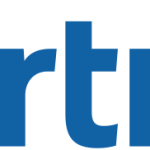- Industria: Consulting
- Number of terms: 1807
- Number of blossaries: 2
- Company Profile:
Gartner delivers technology research to global technology business leaders to make informed decisions on key initiatives.
A logical partition of applications and data to be upgraded together.
Industry:Technology
Regulatory compliance is concerned with laws that a business must obey, or risk legal sanctions, up to and including prison for its officers.
Industry:Technology
Companies creating their own internal compliance demands. This type of compliance is driven by needs ranging from preserving shareholder equity to embracing stakeholder identity.
Industry:Technology
Compliance that a business must adhere to in the course of doing business with trading partners and customers.
Industry:Technology
Complex-event processing (CEP) is a kind of computing in which incoming data about events is distilled into more useful, higher level “complex” event data that provides insight into what is happening. CEP is event-driven because the computation is triggered by the receipt of event data. CEP is used for highly demanding, continuous-intelligence applications that enhance situation awareness and support real-time decisions.
Industry:Technology
A computer in which individual instructions may perform many operations and take many cycles to execute, in contrast with reduced instruction set computer (RISC).
Industry:Technology
Complementary metal-oxide semiconductor (CMOS) radio frequency (RF) power amplifiers (PAs) are used in mobile devices and are capable of providing up to two watts of output power (28 to 33 decibels (dBm)). They are used primarily in mobile phones and PC data cards. Currently used in basic Global System for Mobile Communications (GSM)/general packet radio service (GPRS) handsets, it is likely that there will be greater adoption in third-generation (3G) handsets in the future—due to the lower output power requirement and the need for power control for 3G. Key benefits of the technology, compared with the alternatives, are lower cost and greater integration—leading to a smaller footprint in the mobile device.
Industry:Technology
A semiconductor technology that uses less power and generates less heat (enabling higher circuit density), but is typically slower than bipolar technologies.
Industry:Technology
Competitive intelligence (CI) is the analysis of an enterprise’s marketplace to understand what is happening, what will happen and what it means to the enterprise. CI business goals may be offensive — positioning the company in the marketplace, plotting a course for future positioning, and allocating short- and long-term resources. Goals may also be defensive — knowing what is happening, what may happen and how to react.
Industry:Technology
An organizational structure used to coordinate IT skills with an enterprise. Competency centers provide expertise for project or program support, acting both as repositories of knowledge and resource pools for multiple business areas. Skills-based competency centers, the most common type in an information services organization, are used for application development, software language skills, data management, Internet development and network design. Within the enterprise, it is increasingly common to find competency centers (or shared services) for travel, finance and human resources. Repository-based competencies act exclusively as sources of information.
Industry:Technology
